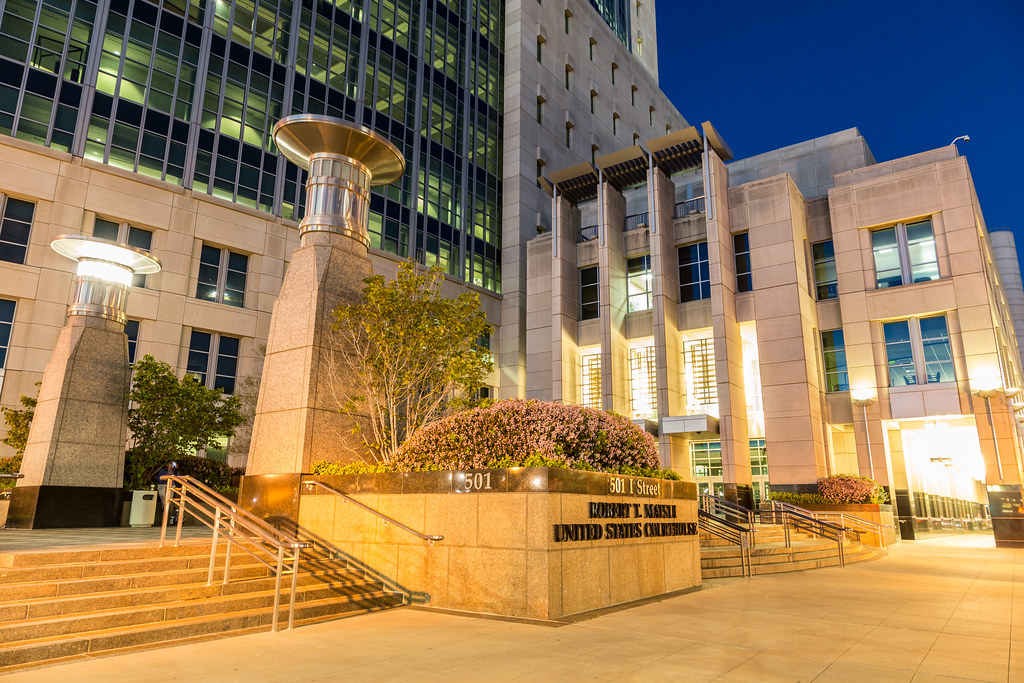Reporters Committee supports coalition’s effort to unseal Facebook Messenger encryption case documents

Update (July 27, 2020): On July 22, 2020, the U.S. Court of Appeals for the Ninth Circuit affirmed the district court’s denial of the motions to unseal in Washington Post v. DOJ and ACLU et al. v. DOJ. The Court held that there is no First Amendment right of access to the materials. In addition, the Court declined to consider whether there is a separate common law right of access to the documents “because any presumption in favor of access would be outweighed by a compelling government interest in maintaining secrecy in an ongoing investigation.”
The Reporters Committee for Freedom of the Press and 23 other organizations are supporting efforts to unseal court documents from a contempt case about alleged MS-13 gang activity on Facebook Messenger.
In a friend-of-the-court brief filed on June 19, attorneys for the Reporters Committee argue that the public has a right under common law and the First Amendment to access court records in the case. The records at issue are being sought by The Washington Post, the American Civil Liberties Union, the Electronic Frontier Foundation, and Riana Pfefferkorn, the Associate Director of Surveillance and Cybersecurity at the Stanford Center for Internet and Society.
The ACLU, EFF and Pfefferkorn moved to unseal the court docket, briefs and judicial rulings in the case, but their request was denied. The Post also filed a separate motion to unseal, which was also denied. The parties have appealed the denial of both motions to the Ninth Circuit.
The case — which is part of an ongoing legal battle between Facebook and the Department of Justice — arose from an investigation into 16 MS-13 gang members in California who were accused of various drug, assault and racketeering-related crimes.
These proceedings were all conducted under seal, but were reported on by The Post and other news outlets. The Post’s article explains that the DOJ attempted to have Facebook held in contempt in a sealed proceeding for not complying with their request to alter encryption on Facebook’s Messenger app in order to obtain certain users’ voice communications pursuant to a wiretap order. Federal law requires technology companies to provide the government with technical assistance to carry out a wiretap order on certain communications services, as long as the interception can be done unobtrusively and with a minimum of interference with the service.
However, Facebook refused to provide the assistance the DOJ requested, arguing in a sealed court filing that Messenger is not a system covered by that law and that because Messenger is built with end-to-end encryption — meaning that calls are encrypted between both parties — Facebook has no way to decode them without incurring extreme costs that would ultimately burden the company and threaten digital privacy for all.
According to news reports, in September 2018, a federal district court in California denied the government’s motion to have Facebook held in contempt in a sealed order.
The Reporters Committee’s brief argues that, in denying the motions by the Post, ACLU, EFF, and Pfefferkorn to unseal the court records in the sealed contempt proceeding, the district court mistakenly characterized the materials to which the parties sought access as “wiretap materials.” Instead, the brief argues that they are instead judicial records that the press and the public have a right to access under the First Amendment.
“The Supreme Court has described public access as an ‘essential’ component of the American judicial system that allows the public to participate in and serve as a check upon the judicial process,” the brief reads.
Rather than keeping the entirety of the documents under seal, any information that would threaten users’ privacy or government interests should be redacted and the rest released, the brief states.
In addition, the brief highlights journalists’ use of encrypted conversations to speak with confidential sources, making the unsealing of these documents particularly relevant to reporters, as well as the public, especially as more cases concerning the government’s legal authority to monitor encrypted communications emerge. These cases could have a significant impact on the future of journalists and investigative journalism depending on how courts decide them.
“Members of the news media have an especially salient interest in understanding potential threats to the security of their communications, by private or public actors, given their need to securely communicate in order to protect both journalistic work product and sources,” the brief reads. “Confidential sources, in particular, are the lifeblood of investigative reporting, particularly in areas involving national security or law enforcement.”
Read the Reporters Committee’s brief.
The Reporters Committee regularly files friend-of-the-court briefs and its attorneys represent journalists and news organizations pro bono in court cases that involve First Amendment freedoms, the newsgathering rights of journalists and access to public information. Stay up-to-date on our work by signing up for our monthly newsletter and following us on Twitter or Instagram.